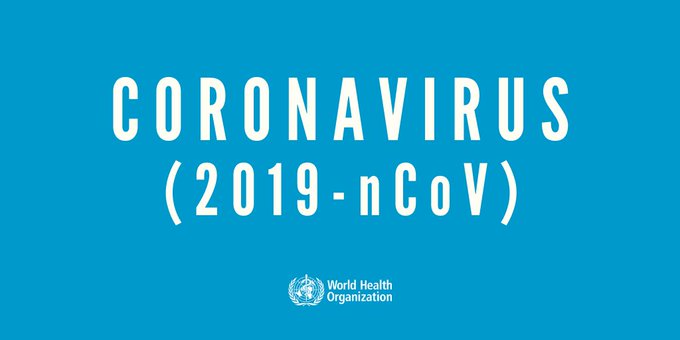On Jan. 14, the World Health Organization sent a tweet that turned out to be one of the most significant statements in the world’s fight against the virus now known as Covid-19. Based on information from China, the global health agency wrote, the new coronavirus didn’t appear to spread via human-to-human transmission.
Two weeks earlier, health authorities in Taiwan had reached the opposite conclusion. Not only did Taiwan’s Centers for Disease Control surmise that people were passing the disease to each other, they notified the WHO of their suspicions through the UN agency’s International Health Regulations reporting window, a platform for sharing information and updates.
“We tried to get clarification from the IHR on what’s going on in Wuhan,” Taiwan Foreign Minister Joseph Wu told me. “But the response from the WHO was, ‘OK, we’ll take it from here.’” The Taiwanese never heard back.
That incident marked a crucial early moment in the WHO’s failure, in tandem with China, to stop the epidemic. It also reflects what has become an impossible needle for the Geneva-based authority to thread between an increasingly dominant member, Beijing, and one of the only stars in this pandemic, which can’t even walk in the front door. The absurdity hit a public peak when a senior official couldn’t even acknowledge Taiwan’s existence in an interview with a Hong Kong broadcaster.
Taiwan’s success in controlling Covid-19 has bolstered its global standing even amid a multi-year campaign by Beijing to stifle and isolate the place. Left flat-footed by the WHO, nations are expanding bilateral ties with Taipei to bolster their own Covid-19 responses. A consensus is also starting to emerge in the international community that Taiwan should be given access to the WHO and other multilateral agencies, even as China's opposition grows louder.
Forced to develop its own health vigilance systems, Taiwan, with a population of 23 million, took a separate approach to handling the virus. When the WHO recommended against restrictions on travelers from China, officials in Taiwan implemented bans from the original affected areas and later widened them. As the WHO advised that masks weren’t necessary, Taiwan ramped up production and issued them to citizens.
As the pandemic spreads around the world, Taiwan has recorded just 339 cases and 5 deaths, 1 compared to official figures of more than 82,000 cases in China and more than 10 times that number globally. The vast majority of Taiwan’s cases are of citizens returning from Europe or the Americas.
Being left in the international wilderness is nothing new to Taiwan. It’s recognized as a country by only 15 mostly tiny nations with which it has diplomatic ties. China lays claim to its territory, viewing it as unfinished business from the civil war that brought the Chinese Communist Party to power in 1949. Bloomberg Opinion columnist Hal Brands notes that the WHO has become a tool of China’s foreign policy aimed at isolating Taiwan and its democratic government.
The diplomatic difficulty this causes for Taiwan in dealing with the UN and its agencies is becoming hard to sustain; who shares what, when, how and at what level has been a problem in aviation and other sectors as well as health. The pandemic, however, is making what often seems a local problem more visible and relevant to the wider world.
Over the past week, the WHO has insisted it “works with Taiwanese health experts and authorities.” Taipei responded that information it shares to a WHO database doesn’t get distributed to member states. Taiwan noted that while it and the WHO both participate in a third-party sharing network, its health officials are cut off from the UN agency’s global alert network.
“We don’t know what we don’t know. We don’t know what the WHO is telling the Chinese CDC,” said Huang SongEn, an epidemiologist at Taiwan’s health ministry. “It’s a black hole.”
Over the past week, the WHO has insisted it “works with Taiwanese health experts and authorities.” Taipei responded that information it shares to a WHO database doesn’t get distributed to member states. Taiwan noted that while it and the WHO both participate in a third-party sharing network, its health officials are cut off from the UN agency’s global alert network.
“We don’t know what we don’t know. We don’t know what the WHO is telling the Chinese CDC,” said Huang SongEn, an epidemiologist at Taiwan’s health ministry. “It’s a black hole.”
If there’s any upside, it’s that this emergency has spurred officials in the U.S., Japan and the European Union to quickly expand bilateral ties so that they can learn from Taiwan’s success. Last month, Washington’s representative to Taipei issued a joint statement with Wu announcing increased cooperation including research and development, contact-tracing, and scientific conferences.
“We continue to look to other countries who’ve had longer experience with Covid-19 to share information,” Sarah Bennett, head of the U.S. CDC’s International Task Force for Covid-19, told a teleconference when asked about its relationship with Taiwan. The European Union said it's working with the Taiwan government's Academia Sinica to develop a rapid test.
In the complex diplomacy involving Taiwan, and in fighting the pandemic, this kind of stuff matters. Since the outbreak accelerated in January, Japan, the U.S., U.K., EU and Australia are among those that have joined the call for Taiwan to be given access to the WHO.
Taiwan officials shy away from criticizing the WHO. They want to be a member and get the same recognition and access to multilateral institutions as any other. In speeches and press conferences on Covid-19, President Tsai Ing-wen has repeated a mantra she’s used before to highlight the country’s commitment to global issues like health and the environment: Taiwan Can Help.
Tsai argues that Taiwan’s willingness to offer solid medical and technical assistance in this crisis makes the case for a seat at the global table. The international community is starting to agree.
This column does not necessarily reflect the opinion of Bloomberg LP and its owners.

 .
.

No comments:
Post a Comment